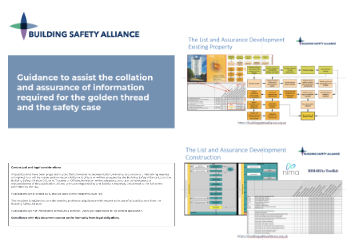Future skills for civil engineers
Contents |
[edit] Introduction
With the pace of digital transformation within the construction industry increasing, we look at the skills civil engineers may need in the future in order to adapt to changing technologies.
[edit] Digital transformation
There's no doubt that advances in technology are key to increasing productivity and enabling more sustainable ways of working. But has industry been too slow in taking advantage of this digital transformation? Do today's civil engineers possess the right skills to successfully enact that transformation or will a programme of retraining and refocusing be necessary?
In a February 2020 ICE and Bluebeam survey which looked at digital transformation in the engineering and construction industry, 55% of respondents put the slow uptake of digital down to a lack of skills and expertise when it comes to implementing change.
So how much will digital transformation shape the skills that civil engineers need in the future?
President's Future Leader Holly Smith says that although digital transformation is necessary and already happening, it's not just about technology. "It's also about how we implement change using people," says Holly.
"How do we sustain and drive our accelerated journey to a digital future? The involuntary nature of having to adapt to remote working has removed the barriers, but it's time to reflect upon where our personal digital skills limitations lie.
"For example, I feel that gaining coding skills would help me to automate my work and work more efficiently. Companies that truly want to be leaders in digital need to support upskilling in the digital space."
[edit] Prioritising digital solutions
In the construction industry, we know that the use of digital technology has increased with the use of apps and dashboards to summarise information and provide real-time access to live information. But equally, we know that organisations don't always prioritise efficient digital solutions.
Fellow President's Future Leader Hayley Jackson says the current health crisis has inadvertently focused engineers’ skills on remote working and technology.
"Jobs that would have only been available to those able to work in an office or on site may now be recognised as something which could be completed partially or fully from home," says Hayley.
"I believe this could be the leap the construction industry needs to become one that is perceived as more flexible, embracing technological advancements and therefore increasing the pool of professionals to undertake engineering roles by changing the way we work."
Hayley agrees that civil engineers will need to upskill their digital knowledge and adapt to digital interfaces seen within their day-to-day work but she also feels that the future will be a mix of traditional skills and emerging technology.
"A civil engineer's fundamental skills won't change," says Hayley. "The core principles will still apply, but engineers will need to have the ability to familiarise themselves with changes in digital technology and will need to be able to learn the skills to review models and complete online documentation, as an example. There will be those with the more traditional engineering backgrounds, but then the industry will need to embrace those with an in-depth digital understanding to fully allow digital and technological growth in the industry."
[edit] Digital transformation
The National Digital Twin programme, delivered by the Digital Framework Task Group (DFTG), is a key step in the digital transformation of the infrastructure and construction sectors.
“We haven’t yet grasped the opportunities that digital transformation will bring to our industry,” says Mark Enzer, chair of both DFTG and the National Digital Twin Programme. “But by working together, these task groups are gaining momentum and moving at a pace. So I look forward to the relationship evolving as we take the industry to the next level of connectivity and integration.”
It's clear that digital technology within the industry is no longer only 'nice-to-have' and engineers will need to adapt.
[edit] Tech to watch
A report by PSR Solutions who specialise in recruitment in the civil engineering sector, states that advances in technology are already influencing the construction process, paving the way for ‘smart’ building techniques. Building Information Modelling (BIM) is enabling engineers to create virtual models of their designs. Drones scan building sites, meaning builders can analyse weak spots and collect high-resolution images to input into photogrammetry systems. And 3D printing allows civil engineers to tailor their designs to specific criteria and create custom designs and structures.
According to Andrew Watts, CEO of engineering technology firm Newtecnic, this trend is part of a new era of digital construction where robots and drones will become commonplace on site. “Drones will be equipped with hi-def cameras that feed data back to on site construction labs,” says Watts.
“There, 3D printers will be able to manufacture components based on the data, producing replacement parts for the building that perfectly fit the structure. It goes straight from the robot taking the 3D survey information to the software that’s going to make the component.”
James Chambers, director of Bluebeam UK says that failure to adopt new technology will eventually affect companies' bottom line, and slow productivity growth could affect profits.
In the joint ICE/Bluebeam survey on adapting to digital, 78% agreed that the industry has been too slow to adopt technology and 72% that it is not moving quickly enough into digital processes.
"As an industry, we have a huge opportunity to reap the rewards of digital transformation," says James. "Not only does it have the potential to increase our productivity, but it can give us better ways to meet the needs of our customers. We need digital innovators in positions of leadership in our firms. Those leaders must be able to drive forward digital implementation plans, effecting organisational change where necessary."
"Most of all, we need to properly invest – industry-wide – in training our workforce to develop the skills required to adapt to technological change."
--The Institution of Civil Engineers
This article originally appeared as "What skills will civil engineers need in the future?" on the ICE Community Blog. It was published on 11 May 2020 and written by Andrew Panos.
[edit] Related articles on Designing Buildings
- Civil engineer.
- Civil engineering is constantly evolving, and so must our institution.
- Data and infrastructure productivity.
- Digital Built Britain.
- Digital communications and infrastructure dependencies.
- Digital transformation - overcoming barriers.
- Five transferable skills important to civil engineering.
- How to gain a competitive edge with digital technologies.
- How to make the digital revolution a success.
- ICE articles on Designing Buildings Wiki.
- Infrastructure that allows humans to flourish.
- State of the nation: Digital transformation.
- Uncertainty in the civil engineering profession.
Featured articles and news
International Electrician Day, 10 June 2025
Celebrating the role of electrical engineers from André-Marie Amperè, today and for the future.
New guide for clients launched at Houses of Parliament
'There has never been a more important time for clients to step up and ...ask the right questions'
The impact of recycled slate tiles
Innovation across the decades.
EPC changes for existing buildings
Changes and their context as the new RdSAP methodology comes into use from 15 June.
Skills England publishes Sector skills needs assessments
Priority areas relating to the built environment highlighted and described in brief.
BSRIA HVAC Market Watch - May 2025 Edition
Heat Pump Market Outlook: Policy, Performance & Refrigerant Trends for 2025–2028.
Committing to EDI in construction with CIOB
Built Environment professional bodies deepen commitment to EDI with two new signatories: CIAT and CICES.
Government Grenfell progress report at a glance
Line by line recomendation overview, with links to more details.
An engaging and lively review of his professional life.
Sustainable heating for listed buildings
A problem that needs to be approached intelligently.
50th Golden anniversary ECA Edmundson apprentice award
Deadline for entries has been extended to Friday 27 June, so don't miss out!
CIAT at the London Festival of Architecture
Designing for Everyone: Breaking Barriers in Inclusive Architecture.
Mixed reactions to apprenticeship and skills reform 2025
A 'welcome shift' for some and a 'backwards step' for others.
Licensing construction in the UK
As the latest report and proposal to licence builders reaches Parliament.
Building Safety Alliance golden thread guidance
Extensive excel checklist of information with guidance document freely accessible.
Fair Payment Code and other payment initiatives
For fair and late payments, need to work together to add value.
Pre-planning delivery programmes and delay penalties
Proposed for housebuilders in government reform: Speeding Up Build Out.
High street health: converting a building for healthcare uses
The benefits of health centres acting as new anchor sites in the high street.


























